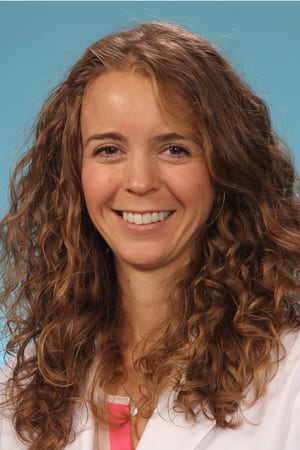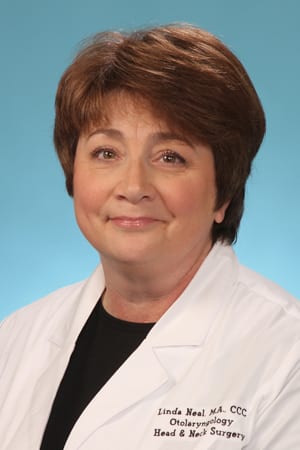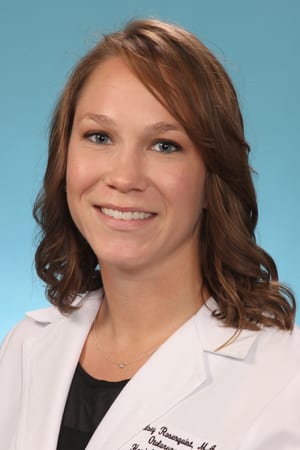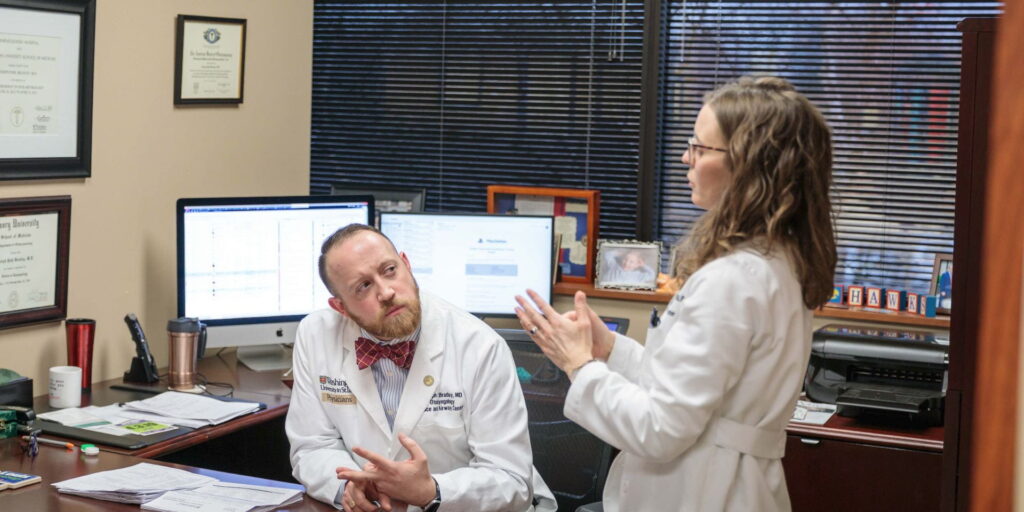Some of the greatest difficulties that accompany head and neck cancer is the loss of speech and swallowing ability. Basic functions of communication make us feel human and connect us with others, so their loss can be devastating.
Our team of specially trained speech-language pathologists (SLP) helps adults with speech and swallowing rehabilitation after head and neck cancer treatment. The team includes Archie Harmon, Linda Neal, Kelsey Rosenquist, and Megan Radder.
Radder and Harmon specialize in voice and airway disorders, seeing patients at both the Center for Advanced Medicine (CAM) and Barnes Jewish West County Hospital. Neal and Rosenquist

Megan Radder, SLP
help patients with speech and swallowing disorders at the CAM.
Much of their work is with head and neck cancer patients, including cancers of the oral cavity, oropharynx, pharynx and larynx. Because cancer treatments can cause debilitating effects on communication strategies, the role of the SLP starts prior to treatment.
“Our role enhances patient care by providing preoperative or pretreatment education and counseling regarding speech and swallow outcomes,” says Rosenquist. “We then provide

Linda Neal, SLP
ongoing objective and subjective assessment and therapy throughout the course of treatment, and long-term follow up. The goal is to improve quality of life as it relates to speech and swallow deficits related to their cancer diagnosis.”
The significance of the SLP in head and neck cancer patient care has increased proportionately with the rise of HPV-related cancers and research interest in improving functional outcomes.
“Patients with HPV-related cancers are presenting at younger ages compared to smoking-related head and neck cancers,” says Neal.

Kelsey Rosenquist, SLP
“That reinforces the need for improving functional outcomes and the role of the SLP. We now have evidence that shows improvements in functional outcomes are better when prophylactic swallowing exercises are implemented prior to the start and continued throughout the duration of radiation therapy.”
The role of the speech-language pathologist is certainly changing to meet patient care needs. This special team clearly has the experience to guide, recommend and adapt interventions to the needs of any patient.
